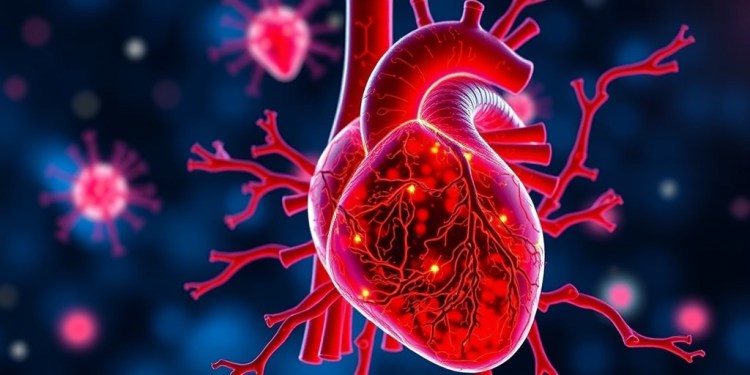Heart disease has long stood as the leading cause of mortality in the United States, claiming one life in every five deaths. The persistence of this grim statistic underscores a profound medical dilemma faced by millions: the inability of damaged heart tissue to regenerate effectively. Patients suffering from end-stage heart failure often find themselves in a desperate race against time, enduring a drawn-out wait for heart transplants while grappling with the chronic limitations of their condition. In a groundbreaking initiative that merges the frontiers of space exploration with pressing healthcare challenges, researchers at Emory University have embarked on a transformative journey. Their mission? To explore cardiac regeneration therapies aboard the International Space Station (ISS), a unique laboratory in the cosmos that facilitates one-of-a-kind scientific endeavors.
Under the leadership of Dr. Chunhui Xu, this innovative research team has harnessed the unique microgravity environment of the ISS to advance their understanding of cardiac cell behaviors. The ISS National Laboratory® has become a pivotal platform for their investigations, as it allows for the observation of biological processes in ways that terrestrial laboratories simply cannot replicate. By venturing into this extraordinary setting, Xu and her colleagues aim to unlock new pathways for developing cell-based regenerative therapies that could potentially reverse heart damage and improve treatment outcomes for patients on Earth.
The impetus for this ambitious research initiative began with a striking revelation observed during earlier studies of cancer cells in space. Researchers noted that cancer cell proliferation and survival rates significantly increased in microgravity, igniting a hypothesis in Xu’s mind: could heart cells exhibit similar advantageous behaviors under these conditions? This question became the foundation of the research that seeks to tackle critical barriers confronting the development of effective cell-based therapies for heart disease.
To validate this hypothesis, the team first conducted preliminary experiments on Earth that simulated microgravity. The promising results propelled them into two vital spaceflight investigations aboard the ISS. The first aimed to understand how stem cells differentiate into myocardial cells—heart muscle cells crucial for the organ’s function—while the second examined the maturation of these myocardial cells into organized, tissue-like structures. The gathered insights from these space-based studies are expected to catalyze substantial advancements in the methods used to produce cardiac cells for regenerative therapies, ultimately reshaping the treatment landscape for heart disease.
Dr. Xu emphasizes the extraordinary potential of the microgravity environment in fostering groundbreaking research. As she states, “The space environment provides an amazing opportunity for us to study cells in new ways.” The implications of their research extend far beyond scientific curiosity; they represent a potential turning point in how heart disease may be treated in the future. The ability to generate cardiac cells more efficiently and with enhanced survival rates when transplanted into damaged heart tissue could significantly shift the therapeutic paradigm for patients struggling with heart ailments.
The importance of regenerative medicine cannot be overstated, particularly in a world fraught with escalating instances of heart disease. Regeneration is inherently tied to the body’s ability to recover from damage, and the heart’s limitations in this respect pose a significant challenge. Current treatment options are limited, often requiring invasive procedures or long-term medication regimens that may not effectively address the underlying issues. With the discoveries being made in space, researchers hope to pave the way toward innovative solutions that leverage the regenerative potential of stem cells.
The trajectory of this research underscores the synergistic potential of combining space exploration and medical advancement. The ISS serves not only as a microgravity research facility but also as a symbol of collaborative effort in an age where global challenges require unified responses. Facilities like the ISS offer unprecedented opportunities for scientists to explore uncharted territories of human health, and the results from Xu’s team affirm the compelling benefits of such endeavors.
As Xu and her colleagues move forward with their research, the hope is to translate their findings into clinical applications that could eventually lead to novel treatments for heart disease. The prospect of generating new heart cells capable of integrating and functioning within damaged cardiac tissue holds significant promise for millions affected by heart failure.
In conclusion, the exploration of cardiac regeneration in space not only enhances our understanding of heart biology and regenerative medical practices but also highlights how the cosmos can serve as a critical frontier for medical innovation. The intersection of space science and heart health is poised to redefine how we approach healing and recovery in ways that could profoundly impact future generations.
As research continues to unfold, the collective aspirations of those engaged in this extraordinary work reflect a shared belief in the power of science to change lives. The ongoing partnership between space exploration institutions and medical researchers underscores a commitment to confronting some of humanity’s most daunting healthcare challenges.
The journey has just begun, but with each experiment, each discovery, and each innovation, the prospect of a healthier future grows nearer. Researchers are not only painting a picture of hope for heart disease patients—they are embarking on a groundbreaking adventure that bridges scientific inquiry with compassionate care, reshaping the narrative of what is possible in the realm of medical treatment.
Subject of Research: Human tissue samples
Article Title: Spaceflight alters protein levels and gene expression associated with stress response and metabolic characteristics in human cardiac spheroids
News Publication Date: March 28, 2025
Web References: https://issnationallab.org/upward/upward-81-emory-heart-cells/
References: https://www.sciencedirect.com/science/article/abs/pii/S0142961224006161
Image Credits: NASA Astronaut Jasmine Moghbeli
Keywords: Stem cell research, Heart disease, Tissue damage, Space stations, Heart muscle, Cardiac regeneration, Tissue regeneration, Cancer treatments, Tumor tissue, Cell transplantation, Tissue transplantation, Stem cell therapy, Muscle tissue, Heart failure, Cancer research, Space flight.
Tags: cardiac regeneration researchcellular behavior in microgravitychallenges of heart transplant waiting listsEmory University cardiac researchend-stage heart failure solutionsheart tissue repair advancementsinnovative therapies for heart diseaseInternational Space Station experimentsmicrogravity effects on heart cellsregenerative medicine in spacespace exploration and healthcaretransformative medical research initiatives





